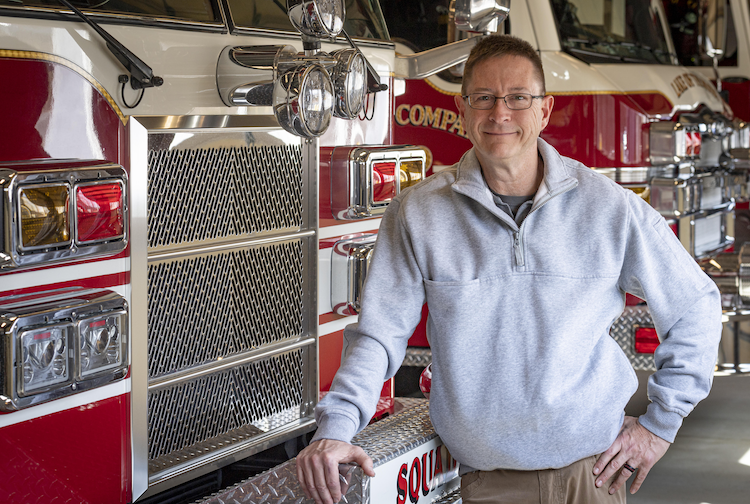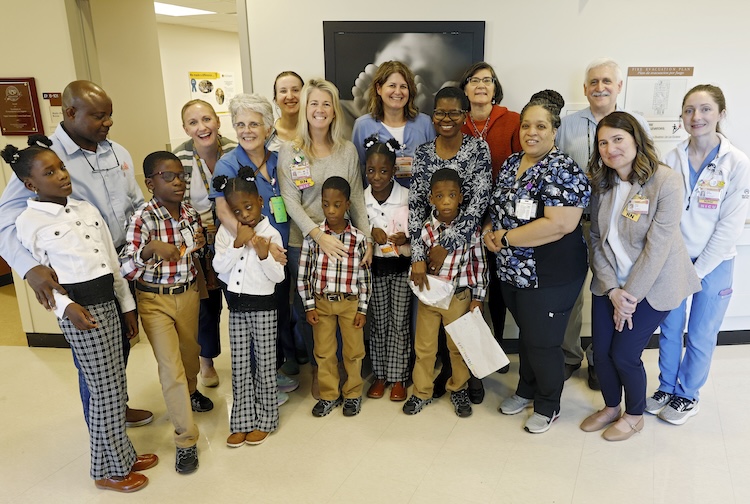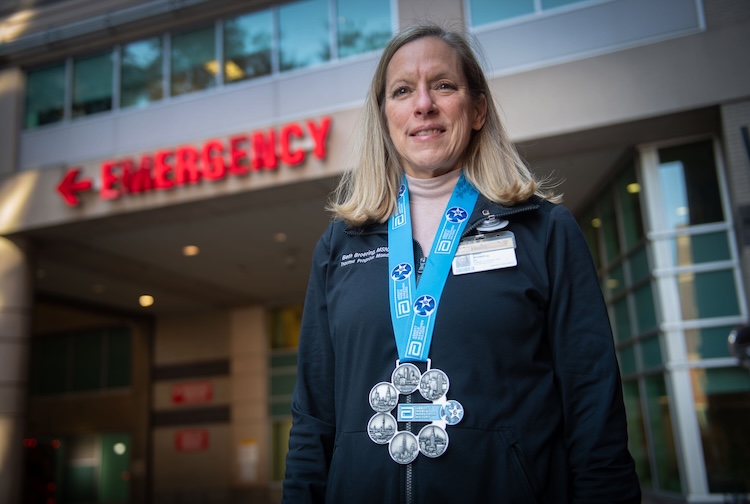VCU Medical Center joins national military-civilian partnership to improve trauma care
Military health care providers will join the civilian medical team at VCU Medical Center's Level I trauma center with the shared goal of reaching zero preventable trauma-related deaths, both on the battlefield and back home.
December 08, 2022 Military trauma response teams during a medical exercise. (Getty Images)
Military trauma response teams during a medical exercise. (Getty Images)
RICHMOND, Va. (Dec. 8, 2022) — VCU Medical Center is the only Central Virginia recipient of a new U.S. Department of Health & Human Services “Mission Zero” grant, aimed at improving trauma care by combining the strengths of civilian hospitals and military trauma systems. The academic medical center, along with 24 other hospitals across the country, received the Military-Civilian Partnership for Trauma Readiness grant to reduce the number of preventable deaths from traumatic injuries both at home and abroad.
Traumatic injury is the leading cause of death in the United States for children and adults under age 44, according to the Centers for Disease Control and Prevention. Several life-saving innovations that stem from combat casualty care in the U.S. military have shown to improve treatment in civilian hospitals. However, the techniques and expertise developed on the battlefield are not always implemented in trauma care systems back home.
Through the program, military trauma teams and providers will be integrated within VCU Medical Center's Level I trauma center and other civilian hospitals across the country to gain exposure to treating critically injured patients and increase readiness for future deployments. At the same time, military medical professionals will teach best practices from the battlefield to further advance civilian trauma care.
“The military health care workforce is well trained, highly skilled and tremendously motivated,” said Marlon Levy, M.D., interim senior vice president for VCU Health Sciences and interim CEO of VCU Health System. “Our partnership allows military personnel to practice in busy environments to keep the clinical edge they'll need when they deploy to care for US forces and our coalition allies - particularly in war zones. They'll benefit tremendously from working with us, and we with them.”
Funded by the Administration for Strategic Preparedness and Response within the U.S. Department of Health & Human Services, the establishment of military-civilian trauma partnerships aims to reduce the number of preventable deaths from traumatic injuries. The program was initiated by the Military Injury Surgical Systems Integrated Operationally Nationwide to Achieve ZERO Preventable Deaths Act or “MISSION ZERO Act.”
“The addition of military colleagues will significantly enhance the skills and knowledge of our medical professionals at VCU Health, while simultaneously providing military health professionals the unique opportunity to train at one of the top trauma centers in the country to strengthen and sustain their readiness to deploy,” said Michel Aboutanos, M.D., MPH, medical director of VCU Medical Center's Level I Trauma Center and Trauma System Network.
As the only Level I trauma center in the region verified in adult, pediatric, and burn trauma care, and home to the oldest and most active civilian burn centers in the United States, VCU Medical Center handles the most serious types of trauma cases 24 hours a day, seven days a week. With state-of-the-art facilities and experienced, compassionate staff, VCU Medical Center delivers trauma care to more than 4,000 severely injured patients a year. This provides a unique training environment for military trauma providers to advance their education and technical skills with patients in all settings.
VCU also has a history of advancing trauma care for battlefield settings. For example, Quick Clot Combat Gauze, one of the game-changing innovations developed for combat casualty care and brought to scale during the United States' wars in Iraq and Afghanistan, is based on a technology developed by VCU researchers.
“The partnership will broadly benefit the Richmond community and the Commonwealth of Virginia,” said Michael Roussos, president of VCU Medical Center. “Many research discoveries and significant lessons learned in combat settings can be applied to urban and rural trauma management. Additionally, military experience in emergency preparedness and disaster management will be essential to enhance the emergency and disaster response system in Central Virginia.”
VCU Health's inclusion in the military-civilian partnership effort has been supported at the local, state, and federal level.
“I'm excited that VCU Health System is receiving federal funding, which I helped secure, to partner with military health care providers in the region, creating more opportunities for training and clinical exposure,” said Virginia Sen. Tim Kaine, a member of the U.S. Senate's Armed Services Committee. “By helping military providers improve their clinical skills, we're not only improving the readiness of our armed forces but also the health outcomes for those in the Richmond community.”
“I would like to congratulate VCU for winning a Military-Civilian Partnership for Trauma Readiness Grant from the Assistant Secretary of Preparedness and Response at the Department of Health and Human Services,” said U.S. Rep. Abigail Spanberger, a former Central Intelligence Agency (CIA) officer. “This exciting new partnership will help maintain military trauma care providers' skills and readiness for deployment by integrating them into civilian trauma care. The award will boost our military's readiness for deployment, improve our communities' access to trauma care, and save lives.”
The late U.S. Rep. A. Donald McEachin was also among the advocates for VCU Health to be awarded the “Mission Zero” grant, recognizing it would improve military readiness.




